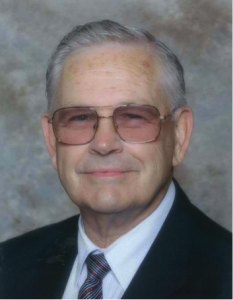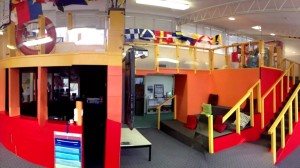In 2006 whilst consulting for the Department of Education in Victoria, I visited Wooranna Park Primary School situated in Dandenong. I remember arriving and standing in the carpark noticing the building with its long corridor shape and typical 1970s design expecting another day in a traditional school setting. Once I entered I was truly amazed and inspired by what I saw. A totally transformed and purpose built learning environment that motivated any learner to want to be there to learn. Gone were the long corridors that were completely gutted to create different colourful spaces and areas of interest. The children were totally engaged in a variety of tasks and experiences. There were no classrooms here but instead learning units where learners worked autonomously with many different choices to learn to achieve their absolute best.
The Principal Ray Trotter was the pioneer behind this outstanding school and meeting him was an absolute privilege. Ray is a hugely remarkable and forward thinking leader who understands the true value and purpose of learning and teaching. From the moment he speaks about his passion for learning and his educational philosophy, you can’t help but be inspired by his wisdom. Ray was and is an edumazing educational leader. A champion of education that our children, teachers and the education system itself need to lead the way for tomorrow and beyond. His story and leadership must be shared to ensure others can follow in his path to create the learning opportunities we must see in our schools and our lives.
Growing up, Ray was challenged by literacy and it was his love of sport that kept him going. “School for me was about sport. I went to school to play sport. Sport made it acceptable. There were teachers there that asked me to leave but one of them – Norm Curry (who later became the Director General of Education) motivated me to continue my schooling”. It was teachers such as Norm Curry who believed in Ray that had a profound effect on his attitude to school, teachers and learning. After failing his final year of school Ray chose to become a teacher as it was an attractive proposition to be paid for teacher training not knowing then where it would lead him in years to come.
Ray says he was fortunate to have a series of mentors that he worked with as an educator who saw something in him. It was whilst teaching at a tough school in Heidelberg West, a mentor encouraged him to apply for promotion positions. This led to a leadership appointment at Brunswick North. This was the only experimental school in Victoria. It worked outside the control of the curriculum branch. They were researching streaming and the ungraded school. Ray devised learning opportunities in small steps for his students where they couldn’t make mistakes only to find it didn’t work. It was against his growing belief that students were responsible for their learning and instead ‘ungradedness’ made students feel like failures.
After this experience Ray moved on to Moreland Primary School where he worked with an educator who had a huge impact on him called Graeme Wigney. He was renowned for his work in Mathematics although his passion was actually Literacy. He had an enthusiasm for school which Ray was astounded by. He used to say “Ray, you’ve got to turn around and see who’s following” and “if you don’t know where you’re going it doesn’t matter which road you take”. He still uses these words of wisdom with teachers today.
Ray led younger teachers who were fresh out of university. They challenged him with their research and theories. This motivated Ray to go to university as a mature aged student where he could research his own methodologies and practices especially regarding why ‘ungradedness’ didn’t work. At this time Ray also realised reading was a natural process of learning and there were many teachers that don’t know how children learn to read. Ray believes most children learn despite the teaching that is done with literacy. This belief was influenced by the work of psycholinguist Frank Smith who also said “you can learn anything as long as you believe you can learn it”.
Ray became Principal of Wooranna Park Primary School in 1987 where his school became the resource centre for gifted and talented students. The more they worked in this area the more they realised all children had gifts that needed to be developed.
Other work Ray did with his staff was observing students playing chess and questioning why these students were able to think five moves ahead yet were failing in Mathematics. He realised that the biggest influence on a child’s success was belief.
Ray also shares his strong belief fostered by the work of David Puttnam (Futurelab chairman) that underachievement is a massive problem throughout the world in all fields. Most of it is the result of children taking on board the opinions of other people and it becomes their fate.
Ray questions teachers who say they are ‘hard markers’ and asks why they need to be, as this does nothing to support children to believe in their abilities and to succeed. Children should be getting the high marks and not be denied their capabilities.
Ray moved away from creating gifted and talented workshops for teachers who visited his school as he realised despite all the work, these teachers were still going back to traditional settings. Instead he focused his attention on his own teachers and students. Here he led way to changing the pedagogy within each learning unit. He wanted children to be responsible for their learning and given every opportunity to do so. There were students that found this challenging as they were used to being told what to do. They didn’t have to think. Over time this mindset shifted. The autonomous learning model was influenced by the work of George Betts. The only difference in Ray’s beliefs were that autonomous learning should not have a time factor but should be happening all of the time. Ray agrees and follows the philosophy of Betts who says “Change the system not the child. Do things with children not to them”. Ray believes we need to change the system to fit with the child but often we find the expectation that the child has to fit into the system.
In 2003 Ray worked with Mary Featherston who helped shape the purpose built learning environment at the school.
I asked Ray what he would like to see in education today and he mentioned the development of positive relationships between teachers and students. These relationships are crucial in supporting students to believe they can succeed. He also shared that he wants to create a school that students want to come to. He believes school should be the place you want to go to, not the place you have to go to.
In recent years the work of Reggio Emilia was a huge influence on the philosophy and work of Ray and his school. Ray believes that each school must have a “Raison D’etre” (Reason for Being) if they are to truly succeed and know where they are going.
Ray has been recognised internationally for his outstanding educational leadership and has won awards for his exceptional achievements.
Ray truly is an edumazing leader and he wants to be best remembered for his passion and creativity. May it continue to radiate and inspire so many who follow his direction. Thank you Ray for your enormous contribution to Education and to positively changing the lives and learning of so many.
For more information about Ray and his magnificent school visit: http://woorannaparkps.com.au/
Written by:
Georgina Pazzi




